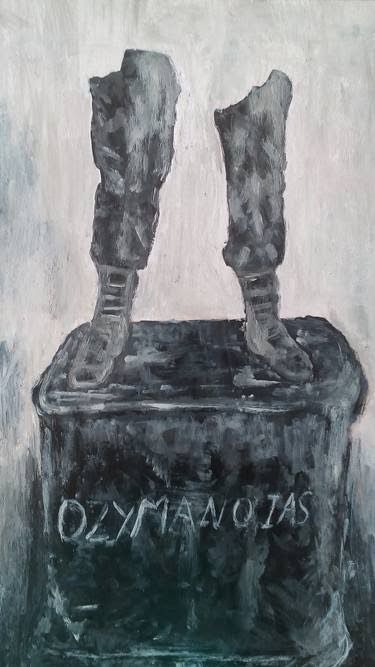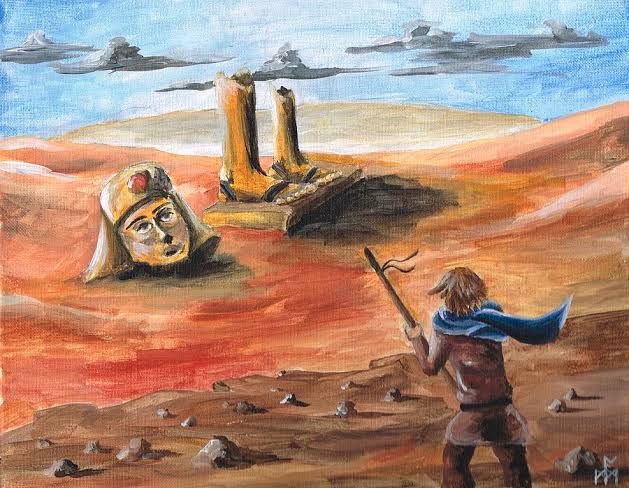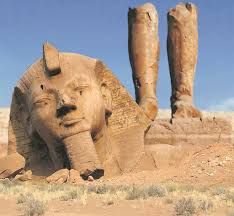Poem Analysis: Ozymandias
Jun 30, 2019 • 40 views
Ozymandias is a poem by P.B. Sally that is satirical which convey the message that power and pride are temporary possessions that make human beings arrogant and egotistical but time treat everything and everyone equally. In this poem the speaker is narrating us what a "traveler from an antique land" had told him.
The traveler had described the speaker a broken statue of an ancient tyrant and the speaker now retells the story in the exact words of the original reporter. The entire poem is in the form of a single stretch of direct speech. The story also satirizes the so-called great ruler as nothing great in front of the "level sands" of time.

The poem develops logically as the writer turns and twists the narration and also suggests the theme of vanity of power and pride. The traveler had told the speaker that there were two "vast and trunkless legs of stone" in the midst of a desert and the other details clearly reveal that the legs belonged to a statue of some ancient tyrant who had an empire. Under one of his enormous statues he had ordered the artist to write the words: "My name is Ozymandias, King of Kings… Look on my works, ye Mighty, and despair". This portrays that the tyrant used to take it for granted that his name would be immortal in an everlasting empire of his. He also addressed to "ye Mighty", meaning 'powerful' kings of the future; all of whom he thought would be much inferior to him. But when the traveler looked around he saw nothing other than an endless stretch of sand.

The traveler's speech is handled in such a way throughout the development of the narration as to suggest many other points of satire and other messages. Along with the trunkless pair of legs, there was a broken face with a frown on it. Along with this the wrinkled lip showed the "sneer of cold command" to the traveler. It seems that the sculptor knowingly represented these features to tell the future generations how cruel and inhuman this tyrant was. The maker of the statue understood the artificial facial expression that the tyrant puts on in order to arouse fear in the people and he must have also read the wickedness and cruelty on his face. The hand of the artist made the statue representing perfectly not only what the tyrant must have told him to but also a truth that fooled the arrogant ruler.
The choice of words has played a pivotal role. The word vast in the poem suggests that the statue was really big, because even the legs without the main trunk are vast. It is also ironical that the signs of inhumanity survive when almost everything else are gone. The "level sands" is a symbol of equality of treatment of everything and everyone by time, and the laws of nature.

The unique techniques employed by this poem is to project the meanings through images and other details. The poem is a sonnet because there are fourteen lines and a certain pattern of rhyme. The rhyming scheme is original which is neither like Shakespearean sonnet nor like the original Italian sonnet.
The humility of the traveler makes a piercing satire on the so-called “great" emperor which is remarkable in the poem. This is really an epic poem as it has a concrete surface and also a depth of symbolic meaning.
